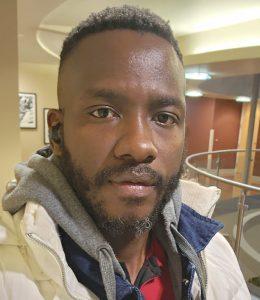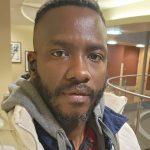 I am Dr. Omalla Allan Olwenyi, born in Kampala, Uganda to the late(s) Mr. Geoffrey Olwenyi and Dr. Suzan Olwenyi Aketch. I completed my O level education at Kings College Budo and A level at Kitante Hill School. While in college at Makerere University, I developed an immense passion for Immunology and Molecular biology. It was during my final year internship at Makerere University Walter Reed Project(MUWRP) that I decided to concentrate more in viral immunology, vaccine trials and microbiology. While working for this institution, I was involved in projects that sought to understand how chronic immune activation drives HIV pathogenesis. Under the supervision of Dr. Michael Eller, a fellow Immunologist and then laboratory director of the institution, I was introduced to the fundamentals of flow cytometry. It was here that I was exposed to my first flow cytometer, the BD Facs Calibur, which is a four-colour instrument. This work resulted in my first publication in JAIDS. Later, I was part of a group that started the grants writing team at MUWRP . This endeavour resulted in me winning my first grant from GSK Trust in Africa that was focused on developing plant products that could be used to target chronic immune activation in HIV infected individuals from Sub Saharan Africa. Further down the road, I won a Fulbright Cultural Exchange grant that facilitated my transition to the University of Nebraska Medical Centre in Omaha Nebraska USA to undertake a PhD in Immunology, Pathology and Infectious Diseases where I studied immune dynamics associated with SIV persistence in various tissues in the labs of Prof. Byrareddy Siddappa and Prof. Courtney Fletcher. Upon completion of my PhD, I accepted an offer as a Technical Director of the Flow Cytometry Core at Creighton University in Omaha Nebraska where I am currently employed.
I am Dr. Omalla Allan Olwenyi, born in Kampala, Uganda to the late(s) Mr. Geoffrey Olwenyi and Dr. Suzan Olwenyi Aketch. I completed my O level education at Kings College Budo and A level at Kitante Hill School. While in college at Makerere University, I developed an immense passion for Immunology and Molecular biology. It was during my final year internship at Makerere University Walter Reed Project(MUWRP) that I decided to concentrate more in viral immunology, vaccine trials and microbiology. While working for this institution, I was involved in projects that sought to understand how chronic immune activation drives HIV pathogenesis. Under the supervision of Dr. Michael Eller, a fellow Immunologist and then laboratory director of the institution, I was introduced to the fundamentals of flow cytometry. It was here that I was exposed to my first flow cytometer, the BD Facs Calibur, which is a four-colour instrument. This work resulted in my first publication in JAIDS. Later, I was part of a group that started the grants writing team at MUWRP . This endeavour resulted in me winning my first grant from GSK Trust in Africa that was focused on developing plant products that could be used to target chronic immune activation in HIV infected individuals from Sub Saharan Africa. Further down the road, I won a Fulbright Cultural Exchange grant that facilitated my transition to the University of Nebraska Medical Centre in Omaha Nebraska USA to undertake a PhD in Immunology, Pathology and Infectious Diseases where I studied immune dynamics associated with SIV persistence in various tissues in the labs of Prof. Byrareddy Siddappa and Prof. Courtney Fletcher. Upon completion of my PhD, I accepted an offer as a Technical Director of the Flow Cytometry Core at Creighton University in Omaha Nebraska where I am currently employed.
Tell us a bit about your PhD work and the University of Nebraska Medical Centre
For my PhD studies, I transitioned from carrying out research in humans to non-human primates (NHP). Unlike conducting research in humans, NHP research offers a platform to interrogate diverse tissues where HIV hides in impenetrable sanctuaries and establishes reservoirs. Thus, I sought to phenotypically characterize and understand immunological mechanisms associated with viral persistence in diverse tissues after several interventions such as testing deep penetrating antiretrovirals. I also zeroed in on understanding how drugs of abuse affect viral persistence in the Central Nervous System (CNS) and the gut. This work involved carrying out extensive immune phenotyping and bioinformatic methods of analyses. I coupled my findings with single cell sequencing, cell sorting and microbiome data to gain insights into immune evasion within these tissue niches.
After your PhD, you transitioned into a role as a Technical Director/ Manager at Creighton University. What does a typical day entail/look like for you?
I oversee all operations of the flow core facility that range from helping research groups design appropriate experiments, train all new users in the core principles of flow cytometry and execute highly technical experiments like cell sorting.
I conduct practical lectures in flow cytometry and multi parametric immune phenotyping to medical and graduate students. I am also involved in teaching basic Immunology to Year 1 medical students and methods in medical research to graduate students. Lastly, I provide guidance, to groups with large existing flow cytometry datasets, on how to conduct bioinformatic-based analysis using established algorithms.
A fair percentage of people do end up in a post-doctoral fellowship, but you immediately got into a full-time job role. What influenced the decision to work versus ‘post-docing’?
I chose this position because it offered me an opportunity to improve my soft skills while still improving on my technical expertise. Upon completion of my PhD, I was highly motivated to continue improving my expertise in multi parametric cell sorting and bioinformatics. This current undertaking gives me a chance to continue pursuing that goal. In addition, I also get a chance to polish up and master managerial skills that involve working with people across different departments, with diverse technical expertise and different attitudes with the intent of fostering cross functional collaboration. I envision that the skills I acquire from my current position will put me in a better position to manage a lab when I transition back to Uganda.
What do you think are keys things can help other graduate students that would like to make that jump post-PhD?
The main thing to consider when formulating your next move post PhD is to have a vision even before you enrol to do a PhD. It is a sacrifice on many levels and at the end of the journey, only you should be in position to honestly delve deep into your soul and evaluate whether it was worth it or not. Have a plan and aggressively pursue it from the get-go like your life depends on it. Depending on whether you want to go into post doc or industry, network and follow the latest research in your field. This will enable you to put your best foot forward when the opportunity for taking the jump after your PhD arises. Next, in whatever offer or field that you choose, commit whole heartedly and don’t procrastinate. Please do not waste anybody’s time as no one wants to hire the posturing PhD who can’t commit to anything.
You have still been able to contribute to work that happens at Makerere University Walter Reed Project (MUWRP) throughout your time in the states. What do you feel is essential for researchers who want to maintain collaborations across borders?
It is essential to build your network even before you go abroad for your studies. Secondly, try to continue keeping close tabs with your fellow researchers back home and continuously communicate through several virtual platforms like email or Whatsapp and just endeavour to keep up with what is going on. Next, always provide technical support where requested. This could range from helping with career guidance, refining operating protocols, providing input to grant development and encouraging fellow colleagues in the struggle. Lastly, strive to ensure that you have a wide knowledge base of the research that is being currently carried out in these settings.
MUWRP holds a soft spot in my heart as it was the organization that offered me my first job and helped me in the administration my first grant. It was through the support of the senior management in this organization, and my former lecturers at Makerere University College of Health Sciences Department of Microbiology that I was able to obtain my Fulbright scholarship. As such, I have received unwavering support from my research network back home.
If you were not working on anything flow cytometry-related, what would be the other piece of equipment or cool lab technique that you would really like to learn or be part of?
I would be more involved in sequencing and microscopy techniques.
What advice do you have for graduate students interested in Immunology and early-career researchers that are navigating the issue of career development?
Be a sponge and absorb as much knowledge as you can. Continue to study hard, keep up with the latest trends and strive to keep your mind open as the field of immunology is a cross cutting discipline that borrows from many sciences.
Feel free to share any recent and favourite publications of yours that people can have a look at to know more about your work so far.
- Olwenyi OA*, Johnson SD*, Bidokhti M*, Pandey K, Thurman M, Acharya A, Uppada S, Callen S, Giavedoni L, Ranga U, Buch SJ, Byrareddy SN. Systems biology analyses reveal enhanced chronic morphine distortion of gut-brain interrelationships in Simian Human Immunodeficiency Virus infected Rhesus Macaques. Frontiers in Neuroscience 16 (2022).
- Olwenyi OA, Johnson SD, Pandey K, Thurman M, Acharya A, Buch SJ, Fox HS,. Byrareddy SN. Diminished Peripheral CD29+ Cytotoxic CD4+ T cells are Associated with Deleterious Effects During SIV Infection. Front Immunol, 2021.
- Olwenyi OA, Asingura B, Naluyima P, Anywar GU, Nalunga J, Nakabuye M, et al. In-vitro Immunomodulatory activity of Azadirachta indica A. Juss. Ethanol: water mixture against HIV associated chronic CD4+ T-cell activation/exhaustion. BMC Complement Med Ther. 2021;21(1):1-14.
- Acharya A, Olwenyi OA, Thurman M, Pandey K, Morsey BM, Lamberty B, et al. Chronic Morphine Administration Differentially Modulates Viral Reservoirs in a Simian Immunodeficiency Virus SIVmac251-Infected Rhesus Macaque Model. J Virol. 2021;95(5):e01657-20.
- Olwenyi OA, Naluyima P, Cham F, Quinn TC, Serwadda D, Sewankambo NK, Gray RH, Sandberg JK, Michael NL, Wabwire-Mangen F, Robb ML, Eller MA. Brief Report: Differential Associations of Interleukin 6 and Intestinal Fatty Acid-Binding Protein With Progressive Untreated HIV-1 Infection in Rakai, Uganda. J Acquir Immune Defic Syndr. 2016 May 1;72(1):15-20.
For more info, head to: https://scholar.google.com/citations?user=uAa-JEIAAAAJ&hl=en&oi=ao
Interview by Vanessa Muwanga
